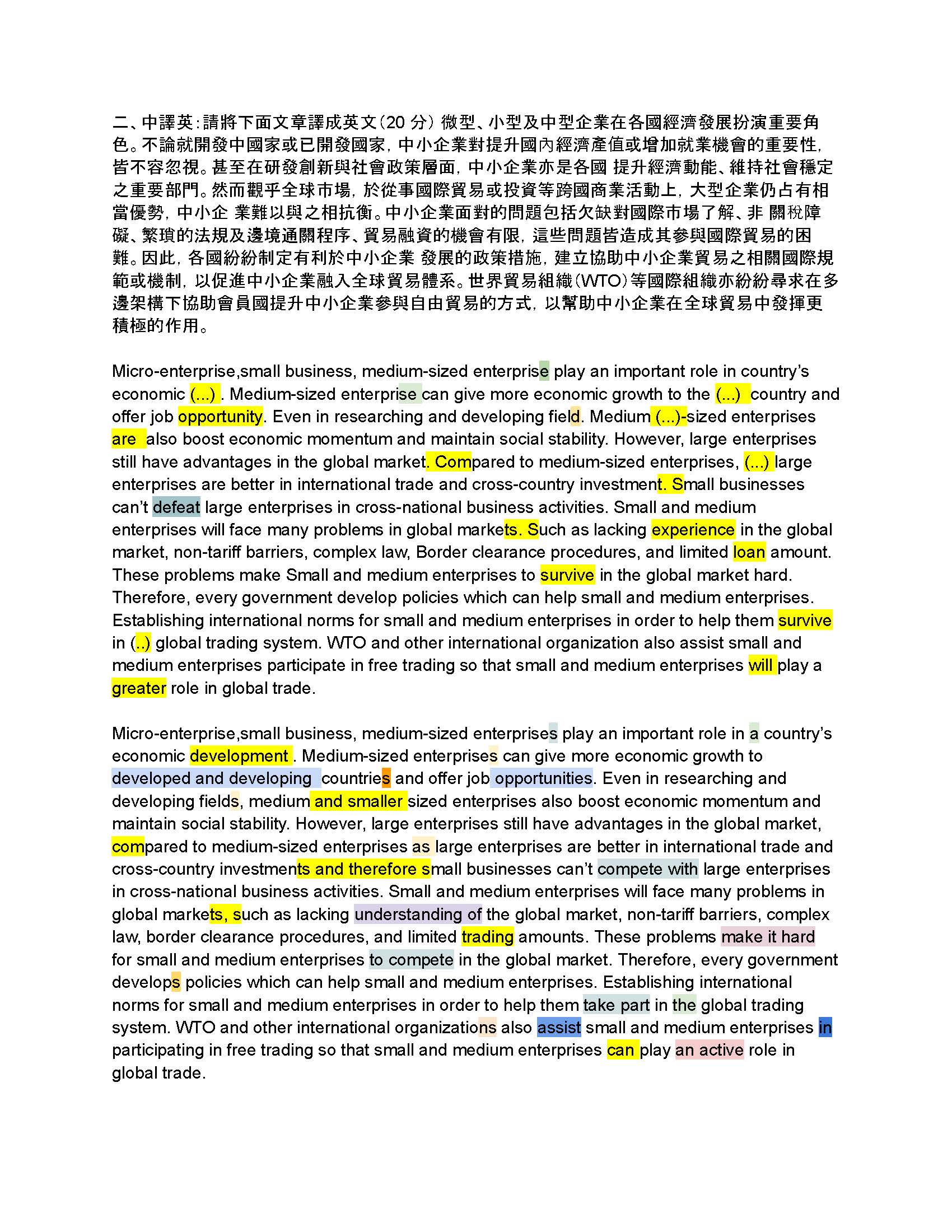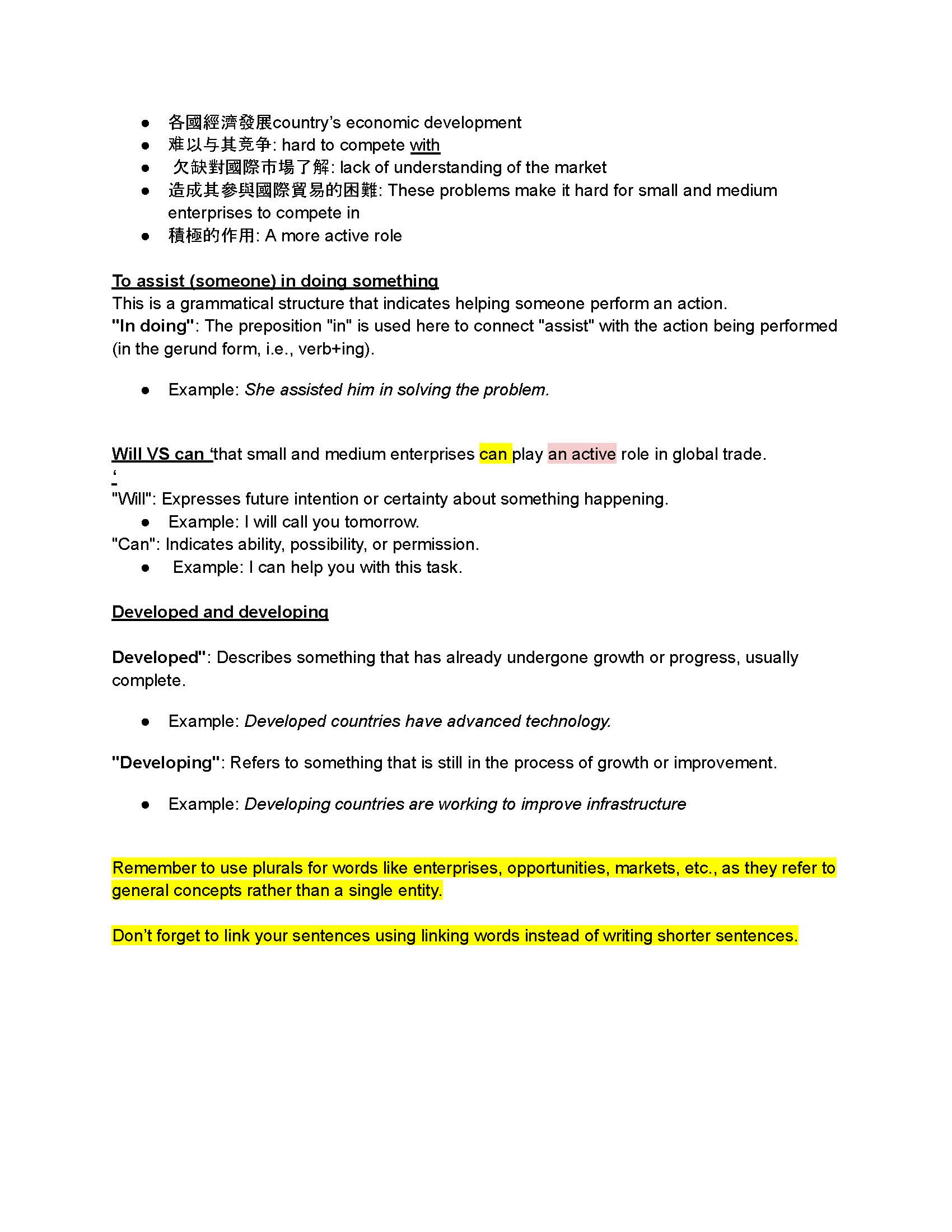一、英譯中:請將下面文章譯成中文(20 分)
We do not create our lives; we are summoned by life. The important answers are not found inside; they are found outside. This perspective begins not within the autonomous self, but with the concrete circumstances in which you happen to be embedded. This perspective begins with an awareness that the world existed long before you and will last long after you, and that in the brief span of your life you have been thrown by fate, by history, by chance, by evolution, or by God into a specific place with specific problems and needs. Your job is to figure certain things out: What does this environment need in order to be made whole? What is it that needs repair? What tasks are lying around waiting to be performed? As the novelist Frederick Buechner put it, “At what points do my talents and deep gladness meet the world’s deep need?” Your ability to discern your vocation depends on the condition of your eyes and ears, whether they are sensitive enough to understand the assignment your context is giving you. As the Jewish Mishnah put it, “It’s not your obligation to complete the work, but neither are you free to desist from beginning it.”
二、中譯英:請將下面文章譯成英文(20 分)
微型、小型及中型企業在各國經濟發展扮演重要角色。不論就開發中國家或已開發國家,中小企業對提升國內經濟產值或增加就業機會的重要性,皆不容忽視。甚至在研發創新與社會政策層面,中小企業亦是各國 提升經濟動能、維持社會穩定之重要部門。然而觀乎全球市場,於從事國際貿易或投資等跨國商業活動上,大型企業仍占有相當優勢,中小企 業難以與之相抗衡。中小企業面對的問題包括欠缺對國際市場了解、非 關稅障礙、繁瑣的法規及邊境通關程序、貿易融資的機會有限,這些問題皆造成其參與國際貿易的困難。因此,各國紛紛制定有利於中小企業 發展的政策措施,建立協助中小企業貿易之相關國際規範或機制,以促進中小企業融入全球貿易體系。世界貿易組織(WTO)等國際組織亦紛紛尋求在多邊架構下協助會員國提升中小企業參與自由貿易的方式,以幫助中小企業在全球貿易中發揮更積極的作用。
micro-enterprise,small business, medium-sized enterprise play an important role in country’s economic . Medium-sized enterprise can give more economic growth to the country and offer job opportunity. Even in researching and developing field. medium-sized enterprises are also boost economic momentum and maintain social stability.
However, large enterprises still have advantages in the global market. Compared to medium-sized enterprises,
large enterprises are better in international trade and cross-country investment. Small businesses can’t defeat large enterprises in cross-national business activities.
Small and medium enterprises will face many problems in global markets. Such as lacking experience in the global market, non-tariff barriers, complex law, Border clearance procedures, and limited loan amount. These problems make Small and medium enterprises to survive in the global market hard.
Therefore, every government develop policies which can help small and medium enterprises. Establishing international norms for small and medium enterprises in order to help them survive in global trading system. WTO and other international organization also assist small and medium enterprises participate in free trading so that small and medium enterprises will play a greater role in global trade.


三、英文寫作(35 分)
Write an essay in two parts. In the first part, answer the following questions: “Are you summoned to be an economic attaché? Are you aware of the challenges confronting small business? Are you prepared to understand and execute the assignments your context is giving you? What are the assignments you are committed to doing?”
In the second part of your essay, write a proposal to address the following scenario: You are an economic attaché delegated to a foreign country. How would you identify business opportunities in the local market and facilitate collaboration between Taiwan’s companies, especially those of the small and medium size and companies operating in that country?

